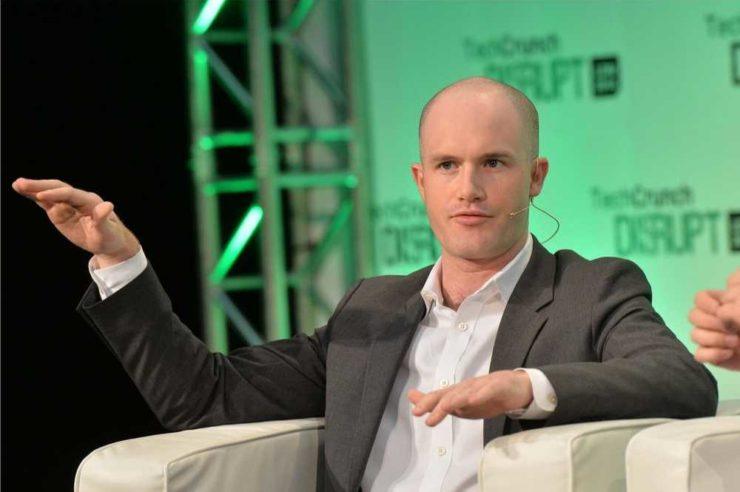Crypto and Social Activism Are on A Collision Course

Since the week began, one of the biggest news making rounds is Coinbase’s decision to put a stop to any form of corporate social activism within its ranks. As expected, this move has sparked reactions not just in the crypto sector but also across the broader business and tech world. On the one hand, some argue that although Brian Armstrong’s take on the role of corporations in political and social movements is unpopular, it is, however, a breath of fresh air. On the other, critics believe that this decision suggests that Coinbase can detach itself from the social realities directly plaguing its consumers and employees.
Here, I will explore both sides of the arguments and try to determine the place of social activism in the crypto industry.
Coinbase Threads an Unpopular Path

Coinbase
On the 27th of September, Brian Armstrong, CEO of Coinbase, revealed his and the company’s stance on matters relating to corporate social activism. The announcement, which marked a critical shift in business culture, revealed that Coinbase will, henceforth, solely focus on issues within the auspices of its core business mission, and employees can only partake in social activism on their own time. The blog post reads:
“Everyone is asking the question about how companies should engage in broader societal issues during these difficult times, while keeping their teams united and focused on the mission. Coinbase has had its own challenges here, including employee walkouts. I decided to share publicly how I’m addressing this in case it helps others navigate a path through these challenging times. In short, I want Coinbase to be laser focused on achieving its mission, because I believe that this is the way that we can have the biggest impact on the world. We will do this by playing as a championship team, focus on building, and being transparent about what our mission is and isn’t.”
While trying to explain the reason for this unexpected shift in ideology, Armstrong explained that dabbling into one or more political or social issues unrelated to the company’s core mission tends to distract and divide its workforce. Therefore, it is best to avoid such problems and focus on Coinbase’s goal of building an open financial system and inspire economic freedom.
“It has become common for Silicon Valley companies to engage in a wide variety of social activism, even those unrelated to what the company does, and there are certainly employees who really want this in the company they work for,” Armstrong wrote. However, he noted that such a business culture creates rifts within the ranks:
“The reason is that while I think these efforts are well intentioned, they have the potential to destroy a lot of value at most companies, both by being a distraction, and by creating internal division. We’ve seen what internal strife at companies like Google and Facebook can do to productivity, and there are many smaller companies who have had their own challenges here. I believe most employees don’t want to work in these divisive environments. They want to work on a winning team that is united and making progress toward an important mission. They want to be respected at work, have a welcoming environment where they can contribute, and have growth opportunities. They want the workplace to be a refuge from the division that is increasingly present in the world.”

Brian Armstrong, CEO of Coinbase
Also, Armstrong added that it is hard to arrive at a singular solution when dealing with issues affecting people with different backgrounds and viewpoints. He noted that even if the team “agrees that something is a problem, we may not agree on how to actually go solve it.” To this end, he expects every employee to be laser-focused on creating a viable infrastructure for the crypto economy, which will, in turn, result in economic freedom. It is also important to note that Armstrong believes that his decision will resonate across Corporate America, which is increasingly finding itself at the center of political and social movements. Like Pete Pachal, CoinDesk’s Executive Editor, Operations and Strategy, stated in a recent publication, Brian Armstrong wants executives to evaluate the central missions of their companies and ensure that it connects to their political stance:
“But that’s exactly the point. Armstrong’s position isn’t a message to Silicon Valley heavyweights to turn back the clock on employee “wokeness” – it’s an open letter to every other corporate leader, urging them to connect the dots between the political positions they might be taking and the central mission of their companies. And if the result is a picture they don’t like, rethink.”
As it Is with every divisive ideology, Armstrong’s take on corporate activism has its fair share of supporters and critics. Some believe that this will encourage more companies to detach themselves from the ever-effervescent political terrain of their immediate societies and create more inclusive working environments. In a tweet that applauds Armstrong’s stance, Paul Graham predicted that more companies will toe this line as it guaranteed success.
Conversely, others argue that Coinbase has opted for a more totalitarian principle regarding issues that directly affect the lives of its employees and consumers. Jessica Alter, the co-founder of Tech for Companies, explained that it is impossible to disconnect economic freedom, which is the core mission of Coinbase, and social justice, which it recently sidelined. She wrote:

Jessica Alter, the co-founder of Tech for Companies
“Stating out loud that you think economic freedom and social justice can be conveniently disconnected is the epitome of why SV has a bad reputation.”
As for Mathew Green, a cryptography professor at Johns Hopkins, he will find it hard to recommend Coinbase to his students:
“Anyway, my students can do what they want. But the Coinbase post genuinely makes it harder for me to recommend that they work there. If that was the point, I guess mission accomplished?”
Green went further to explain that it is futile to create a value-driven company when people involved do not stand for anything.
Following Armstrong’s announcement, Coinbase has allegedly begun to offer employees disgruntled with its apolitical culture a generous severance package should they choose to leave as a result of its recent clarification. According to Coindesk, these employees have until the 7th of October to officially relay their decision to opt for severance. Beyond this deadline, the company will assume that all its employees agree with its latest policy.
Does Crypto Mix Well with Social Activism?

The crypto narrative is itself a political movement pushing for decentralized applications detached from the auspices of totalitarian rules. Besides, Coinbase’s only hope of achieving its lofty goal of offering economic freedom to all depends on crypto’s capability to retain its decentralized functionalities. Coinbase must continue to lobby for regulations that allow crypto fintech firms like it to operate in an environment free from ironclad rules prevalent in the traditional business landscape. Hence, Coinbase will continue to engage in social activism just as every other crypto company focused on establishing crypto as a viable medium of payment. However, one could argue that this type of activism falls under the core mission of Coinbase. And so, it definitely will not feature as one of the broader social issues identified as distractions. Nonetheless, this does not change the fact that a majority of crypto business principles are entrenched in social activism.
Equality, which is one of the main themes of crypto, is a political statement. Whether we like it or not, we are in the middle of a social movement poised to optimize industries and build networks that give all participants equal access to core services, regardless of their race, background, and location. However, as noted by Robert Greenfield, CEO of Emerging Impact, crypto participants often opt to narrow their policies to problems directly impacting their businesses so much so that it is now a common practice to hide from recurring social injustice. Greenfield, while explaining the role of crypto entities in broader social activism like the “Black Lives Matter” protests, highlighted that the unwillingness of crypto firms to post diversity reports shows that the industry is susceptible to the agelong social stratification:

Robert Greenfield, CEO of Emerging Impact
“The blockchain and crypto ecosystem inherited a lack of diversity from legacy tech, from hiring to funding founders of color and highlighting black and brown voices in conferences and press. Even so, there has been a market-wide unwillingness to publish diversity reports and open investor networks […] The crypto community is conveniently selective about what aspects of society it wants to change. Many libertarians were drawn to the ideas of disintermediating government and financial centers of power. In the face of the current president of the U.S. using tear gas against protesters and sending in unmarked security officers in riot gear, many of these same libertarians have been very quiet about this profound display of fascist overreach.”
Greenfield added that it is unsurprising that CEOs in the crypto industry shy away from speaking against social injustice. According to him, many of these executives fear the effects of backlashes:
“The truth is most major blockchain companies and crypto personalities refuse to publicly stand in solidarity against police brutality and racism, fearing the retribution of white supremacist trolls more than valuing the lives of their black colleagues, friends and employees. The issue of “black lives matter” is treated as a subjective and politically divisive topic rather than a well-documented and well-researched fact of American history. It shouldn’t be controversial that efforts to improve diversity and inclusion in corporate executive teams can result in up to 30% more profitability.”
It is worth noting that Brian Armstrong pledged his support for the Black Lives Matter protest in June. In a series of tweets that portrayed his viewpoint on the subject matter, Armstrong explained that although his background shields him from the realities of racism, it does not, however, diminish the fact that it is a cause worth fighting for. He wrote:
“The tragic murder of George Floyd, and broader pattern of racism in the U.S., is a terrible scar on the country. It’s something that my experience (and how I was born) has prevented me from experiencing first hand, and I’ve had to try and understand it second hand from others. After speaking with our Black employees this week, it became clear to me how much pain they are in during this moment. I feel an obligation to support all employees at Coinbase, especially our Black employees right now, who are experiencing something I will never fully understand. So, I’ve decided to speak up. It’s a shame that this even needs to be said in this day and age, but racism, police brutality, and unequal justice are unequivocally wrong, and we need to all work to eliminate them from society.”
Armstrong added that crypto can play a vital role in creating economic freedom for Black Americans. He noted:
“I don’t think crypto can solve everything in the world, but one way it can help is by creating more economic freedom for everyone, including Black Americans. Black Americans have unequal access to financial services in the U.S. today. We need to make financial infrastructure more accessible, more efficient, and open to everyone. This is one way to empower everyone to have more control in their lives.”
It is therefore surprising that he has taken up a stance contrasting his earlier show of commitment towards social activism, knowing fully well that his company’s workforce consists of individuals that may become victims of social injustice. What Coinbase’s standpoint refuses to consider is that the decision to enable an inclusive business does place them as a custodian of the rights of all the people involved. And so, it is counterproductive to ask employees to put a lid on their identities and fears once they resume for work. For some employees, it offers a perfect excuse to remain oblivious to the sufferings of others. And while Coinbase and its CEO have a good reason to implement an apolitical position, it remains to be seen how it responds to situations where its core mission clashes with the culture of countries and regions where it currently operates. Will Coinbase push for women empowerment in countries where women are not allowed to pursue financial freedom?
